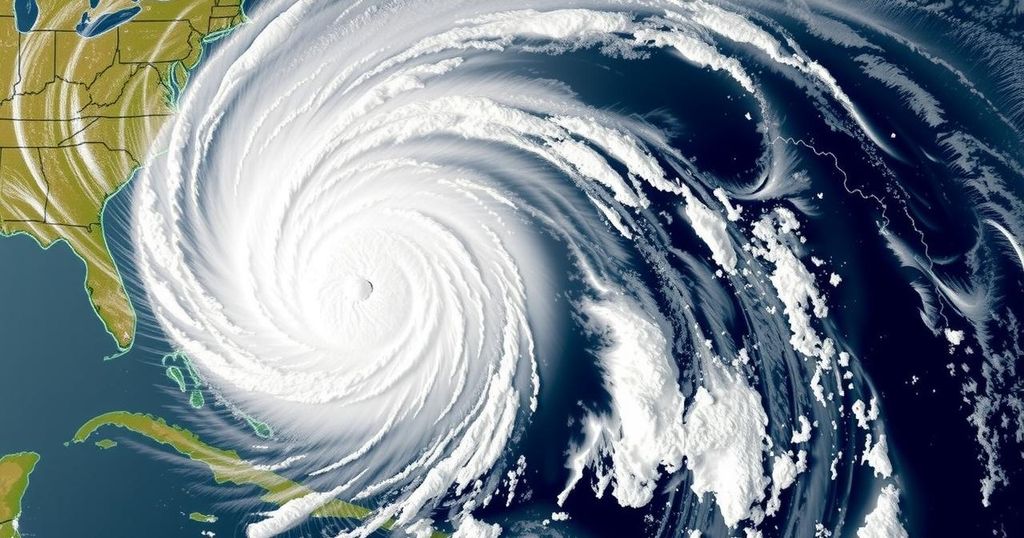Cyclone Chido Causes Devastation in Mayotte as It Approaches Africa’s Coast

Cyclone Chido has resulted in significant damage and fatalities in Mayotte, with ongoing rescue efforts hampered by the cyclone’s destruction. The storm is on course to impact Mozambique and surrounding regions, raising concerns about flooding and health crises. Authorities in these areas are preparing emergency responses as they face the implications of climate change on cyclone severity and humanitarian needs.
Cyclone Chido has wreaked unprecedented destruction on the French territory of Mayotte in the Indian Ocean, resulting in multiple fatalities, as officials reported on Saturday. The cyclone is now advancing towards Africa’s east coast. Interior Minister Bruno Retailleau indicated that the loss of life could be significant, although precise figures are not yet available due to ongoing rescue operations. The storm’s winds exceeded 220 kph (136 mph), causing severe damage to infrastructure, including homes, public facilities, and the airport.
French Prime Minister François Bayrou reported that essential services have faced devastating impacts, particularly in areas populated by individuals living in vulnerable conditions. President Emmanuel Macron stated he is closely monitoring the unfolding situation. The prefect of Mayotte, François-Xavier Bieuville, revealed that this is the most violent cyclone the region has seen since 1934, and many residents have suffered substantial losses.
In response to the crisis, 1,600 law enforcement personnel have been dispatched to assist affected residents and prevent looting. Additionally, rescue teams from France and Reunion are aiding local efforts, following the lifting of the highest alert to facilitate recovery operations. However, Mayotte remains under a red alert as authorities continue to advise residents to seek refuge in sturdy shelters.
The nearby nation of Comoros is also experiencing adverse effects from the cyclone. Authorities have implemented safety measures, including the closure of the main airport and schools. Chido is anticipated to impact Mozambique imminently, potentially affecting millions in the northern provinces. In light of previous deadly cyclones in the region, authorities in Malawi and Zimbabwe are preparing for possible flooding and evacuations in the coming days.
The cyclone season, stretching from December to March, has increasingly been linked to climate change, which is exacerbating the severity of these natural disasters. As low-income countries, which significantly contribute little to climate emissions, face humanitarian crises, the implications of these storms underline the need for global climate action.
Cyclone Chido represents a significant climatic event within the cyclone season in the southeastern Indian Ocean, which occurs annually from December to March. This season has recently witnessed the emergence of numerous potent cyclones, prompting concerns over the increasing frequency and intensity attributed to climate change. Historical context reveals that Mozambique, Malawi, and Zimbabwe are particularly vulnerable to these storms, highlighted by the considerable human toll and destruction in past cyclones such as Idai in 2019 and Freddy last year. The anticipation of floods and subsequent outbreaks of waterborne diseases presents serious public health challenges for communities in the affected areas.
In conclusion, Cyclone Chido’s destructive path has led to tragic loss of life and extensive damage in Mayotte, as officials work diligently amid ongoing rescue efforts. With warnings extending to other parts of East Africa, especially Mozambique, Malawi, and Zimbabwe, it is vital to consider the implications of such disasters within a broader climate change context. As affected regions brace for potential flooding and health crises, the international community must recognize the urgent need for support and sustainable climate action.
Original Source: www.cnn.com






